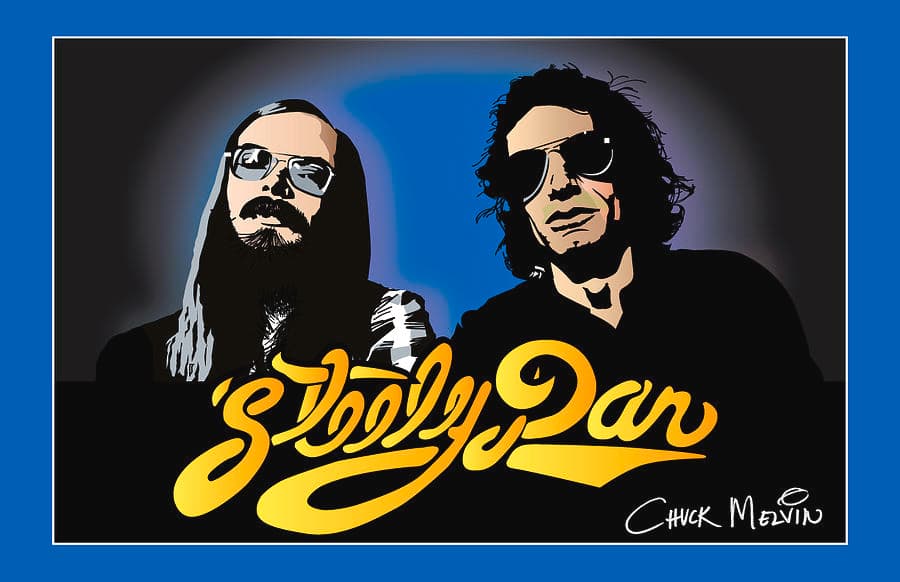
A Wicked and Vengeful Tale of College Betrayal, a Bittersweet Memory of Rebellion and Unforgiving Authority.
In the early 1970s, as the polished sounds of soft rock began to dominate the airwaves, a band of intellectual renegades was forging a different path. Steely Dan, the creative partnership of Donald Fagen and Walter Becker, crafted a sound that was a masterful fusion of jazz’s intricate harmonies and rock’s sardonic wit. Their 1973 album, Countdown to Ecstasy, was a testament to their unique vision, a record that was both musically brilliant and lyrically cynical. Within its tracklist lay a song that was less a pop hit and more a theatrical monologue of vengeance. That song was “My Old School.” Released as a single, it found modest success, reaching a peak of number 63 on the Billboard Hot 100. Its power, however, lay not in its chart performance but in the raw, personal drama of its backstory, a tale of youthful rebellion and a searing betrayal that they would never forget.
The story of “My Old School” is a piece of rock and roll folklore, a true-life drama that unfolded at Bard College in the late 1960s. Donald Fagen and Walter Becker were students there, two young men of brilliant minds and rebellious spirits. Their college was a hub of counterculture, a place that felt like a sanctuary from the straight-laced world. The song’s narrative begins with a nostalgic, almost mocking, look back at a carefree time—the “California girls and a beautiful day.” But the drama quickly turns dark. The campus was raided by the local police during a party, an event that led to the arrest and expulsion of the two future rock legends. The deep-seated resentment, the theatrical punchline of the song, comes from the fact that they were set up. A fellow student, the “key man,” gave them up to the authorities, a betrayal that left an emotional scar that would last a lifetime. The song is their musical retaliation, a brilliant and scathing look back at a painful memory.
The lyrical drama of “My Old School” is a masterpiece of cynical storytelling. Donald Fagen’s vocal delivery, with its signature sneer and cool detachment, is the perfect vehicle for this tale of bitterness. He sings about being a “king on a throne” at college, only to have his reign end with a betrayal that led to his downfall. The music itself—a driving, upbeat piano riff and a powerful horn section—creates a fascinating dramatic tension. The song sounds joyous, like a celebratory march, but the lyrics tell a story of profound hurt. This contrast between the celebratory sound and the vengeful lyrics is what makes the song so uniquely Steely Dan. It’s a theatrical monologue that allows them to get their revenge not with a fist, but with a hit song, a perfectly orchestrated middle finger to the past.
For those of us who came of age with this music, “My Old School” is more than just a song; it’s a nostalgic time capsule, a powerful reminder of the bitterness and humor that can come from looking back on our own pasts. It speaks to the universal experience of betrayal and the satisfying, albeit hollow, feeling of getting the last word. The song remains a timeless and profoundly emotional piece of art, a perfect example of Steely Dan’s ability to transform personal drama into a polished, sardonic, and enduring masterpiece. It’s a song that proves the pen, and in this case, the piano, can be mightier than the sword.
